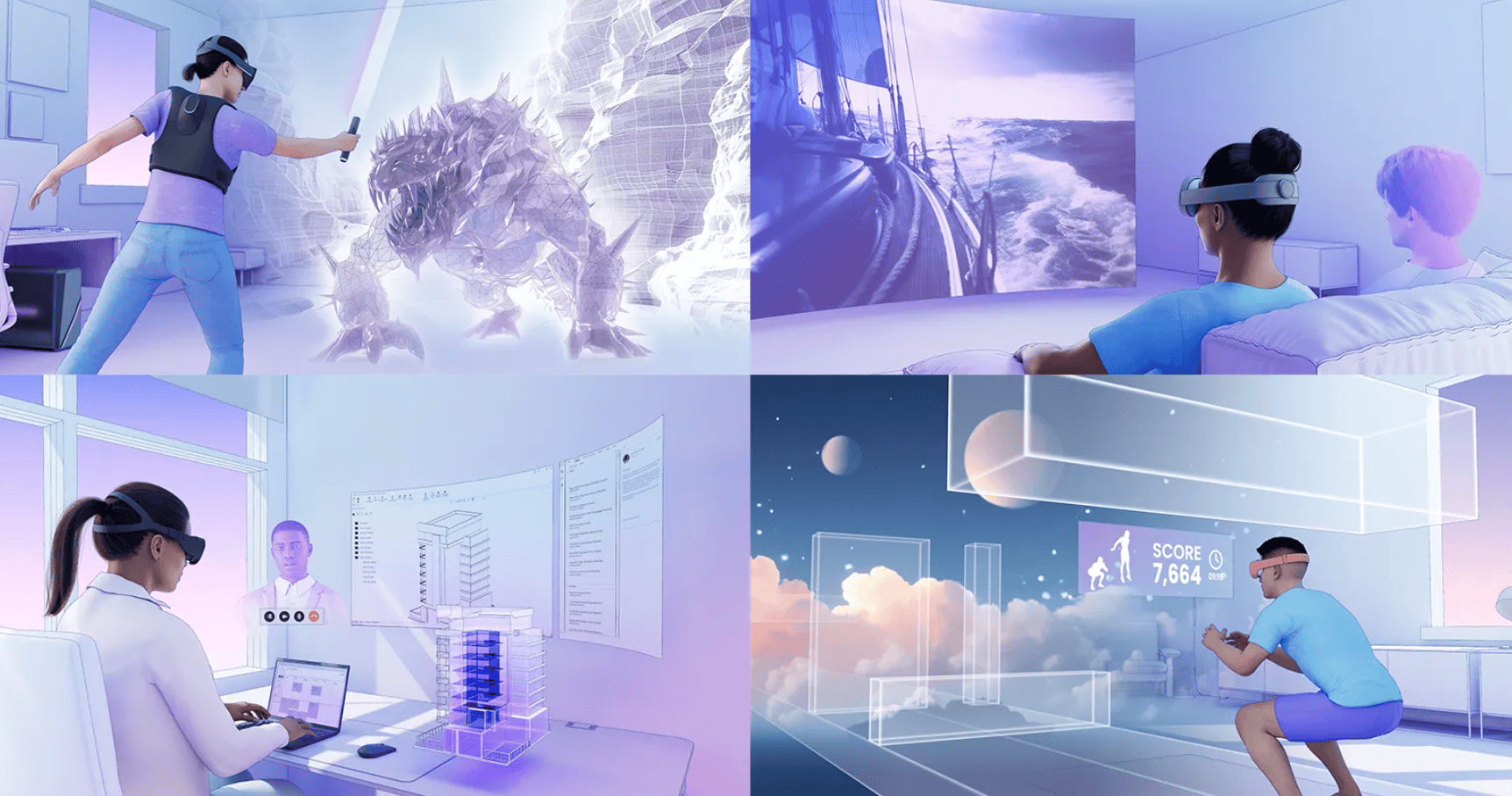Announcement from Meta CEO Mark Zuckerberg on April 23rd: Meta is launching a new generation spatial computing operating system, Meta Horizon OS, and it will be open to third-party hardware manufacturers.
Meta describes Meta Horizon OS as the culmination of its decade-long effort to build the next generation computing platform. To introduce all-in-one headsets, Meta has developed technologies like inward-out tracking. For achieving more natural interaction and socialization, Meta has simultaneously developed eye, face, hand, and body tracking. For mixed reality, Meta has built a suite of technologies for blending digital and physical worlds, including high-resolution perspectival views, scene understanding, and spatial anchoring.
Meta’s investment in mixed reality operating systems began with the foundation of the Android Open Source Project and has resulted in a full mixed reality operating system used by millions. Developers and creators can utilize custom frameworks and tools built by Meta for creating mixed reality experiences.
Moreover, Meta announced the opening of Horizon OS, making the system applicable to headsets beyond Quest, with current partners including Microsoft, Asus, and Lenovo.

Meta aims to expand its influence in the VR/XR field through an open operating system. Meta states, “Today’s announcement brings a more open platform, making it easier to develop content and reach audiences. Thank you for joining us on this journey to collectively build the future of mixed reality ecosystems.”
In the future, headsets will all be able to connect through the Meta Quest Store, which will be renamed the Meta Horizon Store, continuing to offer immersive applications and experiences.
Previously, “Quest” referred to both hardware and software. Now, “Quest” positions as Meta’s headset series, while “Horizon” positions as the overall software platform.
It can be said that Meta is establishing a more comprehensive ecosystem by simultaneously focusing on hardware and software.
What new hardware products will emerge based on the new operating system?
According to the information, Asus is currently producing a gaming device under its Republic Gamers brand. Lenovo is developing an MR device for enhancing productivity, learning, and entertainment. Xbox has also announced continued collaboration with Meta to create a limited edition Meta Quest based on the new operating system.
However, these new devices may not be launched for several years.
So far, the use of XR headsets has been limited, mainly from the gaming community and enterprises using them for training or remote meetings. Meta started early in this area but is now facing greater pressure.
Apple’s Vision Pro and Meta’s Quest are at odds. For instance, Apple claims Vision Pro will be applied in education, training, medical, and other applications, while Meta has been involved in schools for a year now and recently announced the launch of the Quest Education Edition in September this year.
It can be said that both sides are exploring more vertical areas of mixed reality applications.
Meta’s opening of the operating system is an important step. In the future, competition among Meta, Apple, Google, and Samsung regarding XR technology will intensify. Currently, these companies are taking different paths: Apple is focusing on high-performance devices with Apple Vision Pro; Meta is providing its operating system to third parties, forming its ecosystem; Google and Samsung are pursuing their strategies, hoping to establish a position in the XR field similar to their position in the Android era. Meanwhile, more competitors are entering the market, such as Sony.
However, the entire XR market is still in its early stages. (Translated by Penny from DuoZhi)